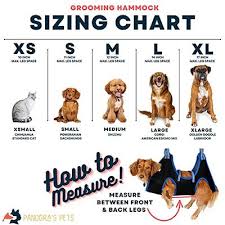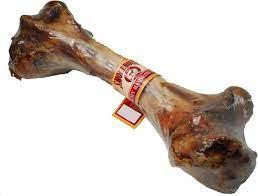The Best Dog Food for Dachshunds: Keeping Your Doxie Healthy and Happy
Dachshunds, with their unique body shape and energetic personalities, require a well-balanced diet to thrive. Choosing the right dog food for your Dachshund is crucial in ensuring their overall health and well-being. Here are some key factors to consider when selecting the best dog food for Dachshunds:
Protein-Rich Formulas
Dachshunds are an active breed that requires a good amount of protein in their diet to support their muscle development and energy levels. Look for dog foods that list a high-quality source of protein, such as chicken, turkey, or fish, as the first ingredient.
Healthy Fats
Healthy fats are essential for maintaining your Dachshund’s skin and coat health. Omega-3 and Omega-6 fatty acids are particularly beneficial for Dachshunds, helping to keep their skin moisturized and their coat shiny.
Joint Support
Due to their long bodies and short legs, Dachshunds are prone to joint issues such as intervertebral disc disease (IVDD). Choosing a dog food that contains glucosamine and chondroitin can help support your Dachshund’s joint health and mobility.
Small Bites
Due to their small size, Dachshunds may benefit from dog foods with smaller kibble sizes that are easier for them to chew and digest. This can also help prevent choking hazards and promote better digestion.
Consult Your Veterinarian
Every dog is unique, so it’s important to consult with your veterinarian before making any changes to your Dachshund’s diet. Your vet can provide personalized recommendations based on your Dachshund’s age, weight, activity level, and any specific health concerns.
By choosing the best dog food for your Dachshund based on their specific needs, you can help ensure that they live a long, healthy, and happy life by your side!
Top Benefits of Choosing the Best Dog Food for Dachshunds: A Guide to Optimal Health and Nutrition
- High-quality protein supports muscle development
- Omega-3 and Omega-6 fatty acids promote healthy skin and coat
- Glucosamine and chondroitin aid in joint health
- Small kibble sizes are easier for Dachshunds to chew
- Balanced nutrition tailored to Dachshunds’ needs
- May help prevent common health issues like IVDD
- Consultation with a vet ensures personalized diet recommendations
Considerations When Choosing the Best Dog Food for Dachshunds: 6 Potential Drawbacks
- May be more expensive compared to lower-quality dog foods.
- Some premium dog foods for Dachshunds may not be readily available in local stores.
- Certain formulations may not agree with every Dachshund’s digestive system, leading to potential stomach upset.
- Transitioning to a new dog food may take time and effort as Dachshunds can be picky eaters.
- High-protein formulas may not be suitable for Dachshunds with certain health conditions that require a low-protein diet.
- Small kibble sizes in specialized dog foods may limit variety and texture options for your Dachshund.
High-quality protein supports muscle development
High-quality protein plays a vital role in supporting muscle development in Dachshunds. As an active breed, Dachshunds require a protein-rich diet to help build and maintain lean muscle mass. Proteins serve as the building blocks for muscles, aiding in their growth and repair. By providing high-quality sources of protein such as chicken, turkey, or fish in their diet, Dachshund owners can ensure that their furry companions have the necessary nutrients to stay strong, healthy, and active.
Omega-3 and Omega-6 fatty acids promote healthy skin and coat
Omega-3 and Omega-6 fatty acids found in the best dog food for Dachshunds play a crucial role in promoting healthy skin and coat. These essential fatty acids help maintain skin moisture, reduce inflammation, and support overall skin health. By including Omega-3 and Omega-6 in their diet, Dachshunds can enjoy a shiny coat, reduced itching, and improved skin condition, ensuring they not only look their best but also feel comfortable and healthy.
Glucosamine and chondroitin aid in joint health
Glucosamine and chondroitin are vital components in the best dog food for Dachshunds as they play a crucial role in supporting joint health. These supplements help maintain the integrity of cartilage, reduce inflammation, and promote overall joint function. For Dachshunds, who are prone to joint issues due to their unique body structure, including glucosamine and chondroitin in their diet can help alleviate discomfort, improve mobility, and enhance their quality of life as active and playful companions.
Small kibble sizes are easier for Dachshunds to chew
Small kibble sizes in the best dog food for Dachshunds offer a significant advantage as they are easier for these small dogs to chew. Dachshunds, with their petite size and unique jaw structure, may struggle with larger kibbles, making it challenging for them to eat comfortably. Opting for dog food with smaller kibble sizes not only promotes better chewing but also aids in digestion, ensuring that Dachshunds can enjoy their meals without any difficulty.
Balanced nutrition tailored to Dachshunds’ needs
Providing balanced nutrition tailored to Dachshunds’ specific needs is a significant advantage of the best dog food for this breed. Dachshunds have unique body structures and energy requirements that require a specialized diet to support their overall health and well-being. By offering a carefully formulated blend of proteins, fats, vitamins, and minerals designed specifically for Dachshunds, this type of dog food ensures that these playful and affectionate dogs receive the essential nutrients they need to thrive and maintain optimal health throughout their lives.
May help prevent common health issues like IVDD
Choosing the best dog food for Dachshunds can have a significant benefit in helping prevent common health issues such as intervertebral disc disease (IVDD). By selecting a dog food formula that includes ingredients like glucosamine and chondroitin, known for their joint support properties, you can potentially reduce the risk of IVDD in your Dachshund. Providing a diet that promotes overall joint health and mobility may contribute to keeping your Dachshund happy, active, and free from certain health concerns associated with their breed.
Consultation with a vet ensures personalized diet recommendations
Consulting with a veterinarian when selecting the best dog food for Dachshunds ensures that your furry companion receives personalized diet recommendations tailored to their individual needs. Vets can take into account factors such as age, weight, activity level, and any specific health concerns your Dachshund may have. This personalized approach helps optimize your Dachshund’s nutrition, promoting overall health and well-being. By working closely with a vet, you can make informed decisions that support your Dachshund’s long-term health and happiness.
May be more expensive compared to lower-quality dog foods.
While opting for the best dog food for Dachshunds offers numerous benefits, one potential downside is that it may come at a higher cost compared to lower-quality dog foods. High-quality dog foods often contain premium ingredients and are formulated to meet specific dietary needs, which can result in a higher price point. However, investing in a quality diet for your Dachshund can lead to long-term health benefits and potentially reduce veterinary expenses down the line. It’s essential to weigh the cost against the nutritional value and overall well-being of your beloved pet when making decisions about their diet.
Some premium dog foods for Dachshunds may not be readily available in local stores.
One drawback of opting for the best dog food for Dachshunds is that some premium options may not be readily available in local stores. While premium dog foods often offer high-quality ingredients tailored to meet the specific needs of Dachshunds, their limited availability can make it challenging for pet owners to access them conveniently. This can require pet owners to explore online retailers or specialty pet stores to find these premium options, adding an extra step to the shopping process. Despite this inconvenience, the health benefits that these premium dog foods provide for Dachshunds may outweigh the challenge of sourcing them locally.
Certain formulations may not agree with every Dachshund’s digestive system, leading to potential stomach upset.
Certain formulations of dog food, even those considered high-quality, may not agree with every Dachshund’s digestive system. This can lead to potential stomach upset, causing discomfort and digestive issues for your furry companion. It is essential to monitor your Dachshund’s reaction to a new diet closely and consult with your veterinarian if you notice any signs of gastrointestinal distress. Finding the right balance of ingredients that suit your Dachshund’s individual needs is key to promoting their overall health and well-being.
Transitioning to a new dog food may take time and effort as Dachshunds can be picky eaters.
Transitioning to a new dog food for Dachshunds can present a challenge as these furry companions can be notoriously picky eaters. It may require patience and effort to successfully switch their diet without encountering resistance. Dachshunds may show reluctance or disinterest in trying out new foods, making the transition process a gradual one. Understanding your Dachshund’s preferences and gradually introducing the new food can help in overcoming their picky eating habits and ensuring they receive the necessary nutrition for their well-being.
High-protein formulas may not be suitable for Dachshunds with certain health conditions that require a low-protein diet.
High-protein formulas, while beneficial for many Dachshunds, may not be suitable for those with certain health conditions that necessitate a low-protein diet. Dachshunds with kidney issues or specific metabolic disorders may require a diet lower in protein to prevent further complications. In such cases, it is essential to consult with a veterinarian to determine the most appropriate dietary plan for your Dachshund’s individual health needs. Prioritizing your dog’s well-being by tailoring their diet to their specific health requirements is crucial in ensuring they lead a healthy and comfortable life.
Small kibble sizes in specialized dog foods may limit variety and texture options for your Dachshund.
When considering the best dog food for Dachshunds, it’s important to be aware of potential drawbacks such as the limitation in variety and texture options that come with specialized dog foods featuring small kibble sizes. While small kibble may be easier for Dachshunds to chew and digest, it may restrict the range of textures and shapes that can provide enrichment during mealtime. Introducing a mix of different textures and sizes in your Dachshund’s diet through treats or occasional variety can help address this limitation and ensure they enjoy a diverse eating experience.




